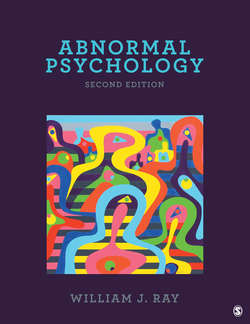Читать книгу Abnormal Psychology - William J. Ray - Страница 51
На сайте Литреса книга снята с продажи.
Ancient Greek and Roman Influences—Mental Illness Involves the Brain
ОглавлениеBeginning with Pythagoras in the sixth century BCE, whom we know for his theorem concerning the sides of a right triangle, there was an emphasis on identifying the underlying scientific principles that may account for all forms of behavior. Pythagoras not only coined the term philosophy, which can be translated as love of meaning or wisdom, but also began to set the stage for understanding human behavior and experience as related to internal processes and natural causes. This was in contrast to the prevailing view that human behavior and related disorders reflected the actions of the gods such as the belief that mental illness was a divine punishment. Pythagoras was one of the first to see the brain as the structure involved in human intellect as well as in mental disorders.
In the next century, Hippocrates moved this concept to the next level with his emphasis on careful observation and a continued articulation of the idea that all disorders, both mental and physical, should be sought within the patient. Hippocrates is often seen as the father of Western medicine. His view of the brain is clearly stated in the following quote:
Men ought to know that from nothing else but the brain come joys, delights, laughter and sports, and sorrows, griefs, despondency, and lamentations. And by this, in an especial manner, we acquire wisdom and knowledge, and see and hear, and know what are foul and what are fair, what are bad and what are good, what are sweet, and what unsavory; some we discriminate by habit, and some we perceive by their utility. By this we distinguish objects of relish and disrelish, according to the seasons; and the same things do not always please us. And by the same organ we become mad and delirious, and fears and terrors assail us, some by night, and some by day, and dreams and untimely wanderings, and cares that are not suitable, and ignorance of present circumstances, desuetude, and unskillfulness. All these things we endure from the brain. (Hippocrates, 400 BCE)
Galen (130–200 CE) was a physician in the Roman Empire who influenced Western and Islamic thought until the Renaissance. Some see him as a representation of the beginning of experimentation in medicine in that he used dissection to better describe the structure and function of physiological structures. His work as a physician to the gladiators would have also given him firsthand knowledge of the consequences of trauma and its treatment.
Galen helped emphasize empiricism, which suggests that information should be gleaned from observation.
Wellcome Images; licensed under Creative Commons Attribution 4.0 International license, http://creativecommons.org/licenses/by/4.0
During his lifetime, Galen wrote hundreds of treatises on science, medicine, and philosophy. He was largely a champion of empiricism, which stresses the use of direct observation as a means of gaining information. Writing in his treatise On Medical Experience, Galen (trans. 1944 by R. Walzer) stated, “I am a man who attends only to what can be perceived by the senses.”
From chance encounters with human accidents and trauma and his anatomical work using a variety of animals, Galen carefully described the brain; the cranial nerves that are involved in sight, smell, movement, and other functions; and the nerves of the sympathetic nervous system involved in fight-or-flight reactions, among others. From his experiments with animals, Galen knew that blood was transported throughout the body. He had an early theory of how blood was changed by the organs based on the idea of spirits. Galen believed that blood was made in the liver, which gave it natural spirits. It then went to the heart where it developed vital spirits and then, with the introduction of air to the blood on the way to the brain, it was transformed into animal spirits. These animal spirits could be stored in the ventricles of the brain until they were needed. Today, we think in terms of hormones rather than spirits. Galen’s works became the encyclopedia of medicine for the next 1,500 years.
